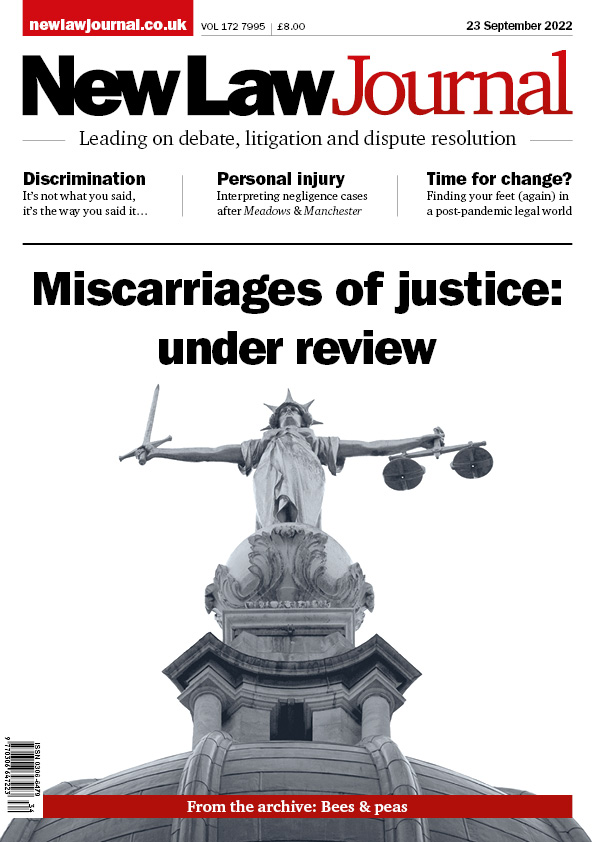THIS ISSUE

Who polices the police and should they be given immunity from suit? Barrister and journalist Veronica Cowan poses this question in NLJ this week.
Former district judge and keen legal archaeologist Stephen Gold has unearthed more treasure from the NLJ archives. This week he takes us back to 1935, when stipes and county court judges are told to retire in their 70s but High Court judges can go on forever.
Proposals for the Law Commission to review the laws governing appeals for criminal cases come under the scrutiny of Michael Zander KC, in this week’s NLJ.
Michael Zander suggests that argument over tweaking of the statutory tests is a waste of everyone’s time
The workplace has changed, and we’ve been though the gruelling years of a pandemic—many lawyers are now seeking to leave the profession altogether. In this week’s NLJ, LawCare Chief Executive Elizabeth Rimmer shares her insights on navigating an uncertain world.
David Burrows reflects on the state of family law & considers the chances of alignment of the Family Procedure Rules 2010 with the Civil Procedure Rules 1998
Charles Pigott explores the ‘reason why’ question in discrimination and whistleblowing cases
Elizabeth Rimmer discusses how to find your feet (again) in a post-pandemic legal world
Dr Wendy Laws provides an invaluable guide to interpreting negligence cases
MOVERS & SHAKERS

Keystone Law—Milena Szuniewicz-Wenzel & Ian Hopkinson
International arbitration team strengthened by double partner hire

Coodes Solicitors—Pam Johns, Rachel Pearce & Bradley Kaine
Firm celebrates trio holding senior regional law society and junior lawyers division roles

Michelman Robinson—Sukhi Kaler
Partner joins commercial and business litigation team in London
NEWS
The government has pledged to ‘move fast’ to protect children from harm caused by artificial intelligence (AI) chatbots, and could impose limits on social media as early as the summer
All eyes will be on the Court of Appeal (or its YouTube livestream) next week as it sits to consider the controversial Mazur judgment
An NHS Foundation Trust breached a consultant’s contract by delegating an investigation into his knowledge of nurse Lucy Letby’s case
Draft guidance for schools on how to support gender-questioning pupils provides ‘more clarity’, but headteachers may still need legal advice, an education lawyer has said
Litigation funder Innsworth Capital, which funded behemoth opt-out action Merricks v Mastercard, can bring a judicial review, the High Court ruled last week







